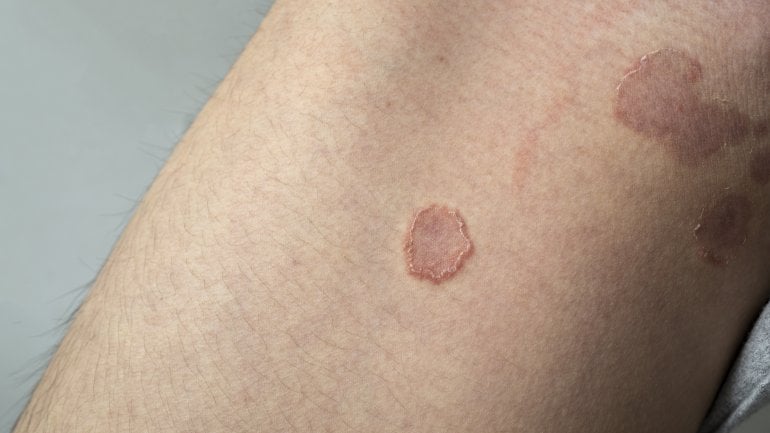Even after surviving a Corona infection, many patients have cognitive impairment, even though the brain scans appear normal. Doctors have now discovered a physiological marker for Neuro-Covid: After months, glucose metabolism in areas of the brain in sufferers is reduced.
In the context of Corona Pandimi It is becoming increasingly clear that infection with SARS-CoV-2 leaves effects even after the acute phase of the disease – especially in Nerves and the brain. In addition to serious long-term effects such as encephalitis and nerve damage, up to 80 percent of patients experience prolonged olfactory disturbances, fatigue, and widespread cognitive deficits – from impaired concentration and sleep disturbances to memory problems.
“These symptoms are not related to severe periods Covid-19 Above all, cognitive disorders are: Even with mild Common and Medium Cases. As a result, proteins marker of nerve damage were already detected in the blood of these patients. However, brain scans usually do not show any abnormalities, which makes researching the cause more difficult.
Neuro-Covid: A look at the brain of Neuro-Covid patients
In search of clearer evidence about the causes of these cognitive deficits in Neuro-Covid, Hosp and colleagues have now subjected 29 Covid-19 patients with neurological symptoms to a full set of special checks – soon after the acute infection and a few weeks to months later. This included extensive tests for memory and concentration, but also a so-called 18-fluorodeoxyglucose positron emission tomography (18FDG-PET) scan.
This method is used, among other things, in diagnosing dementia and uses a sugar solution mixed with weak radioactive fluorine atoms as a catalyst. The sugar in it is absorbed by the energy-hungry brain, thus allowing glucose metabolism in the thinking organ and its regions to be measured in a PET scanner. This, in turn, allows to draw conclusions about functional disorders in specific areas of the brain.
Mental impairment: a specific pattern after infection with Covid
As expected, the majority of test subjects showed cognitive deficits: 54 percent affected poorly to moderately severely, and 15 percent suffered significant losses in their intellectual performance. Often the memory of words or visual objects was particularly affected, but action planning, self-control and conscious control of attention – the so-called executive functions – were also weakened. On the other hand, general alertness or speed of thinking was not affected.
The research team confirms that “this specific pattern is difficult to explain through non-specific factors such as fatigue.” “It also differs significantly from cognitive impairment after sepsis. Instead, this pattern indicates involvement of the anterior parietal regions of the cerebral cortex.” So the deficiencies typical of Neuro-Covid primarily affect the functions controlled by regions of the frontal and parietal lobes of the brain.
Inert in brain metabolism can be demonstrated
Interesting thing: Although normal brain scans with MRI did not show any abnormalities, brain scans with 18FDG PET revealed anomalies. “The scans yielded abnormal results for two-thirds of the patients,” Husb and his team say. Glucose metabolism in the cerebral cortex was significantly reduced, especially in the frontal and parietal lobes – an indication of less activity in affected areas of the brain.
“These results show that neurocognitive problems after infection with Covid-19 disease have a measurable cause,” comments Peter Berlett of the German Society of Neurology (DGN).
Weakness can be reversible
It is clear that the cause of these disorders is not permanent damage to brain cells or local inflammation in affected areas of the cerebral cortex, as additional studies have shown: analysis of the brain of a deceased patient with Neuro-Covid showed hardly any changes in the gray matter of the brain. Instead, the inflammatory changes were visible in the white brain substance where the interconnections and extensions of brain cells exist.
“Impairment of frontoparietal function can be traced back to a process in the white matter or brainstem rather than damaging the cortex,” Hossb and colleagues explain. “This also indicates that this neurological weakness may be reversible.” The changes observed also indicate that they were caused by an immune reaction, and not by the virus itself.
In fact, follow-up research found that cognitive deficits in nearly all patients improved over time. “However, it must be said that some sufferers have not yet reached the normal level even after six months of acute illness, so restoring full health seems tedious in some cases,” says Hossb (Brain, 2021; doi: 10.1093 / Brain / awab009)
Source: German Society of Neurology eV
This article was written by Nadja Podbregar







